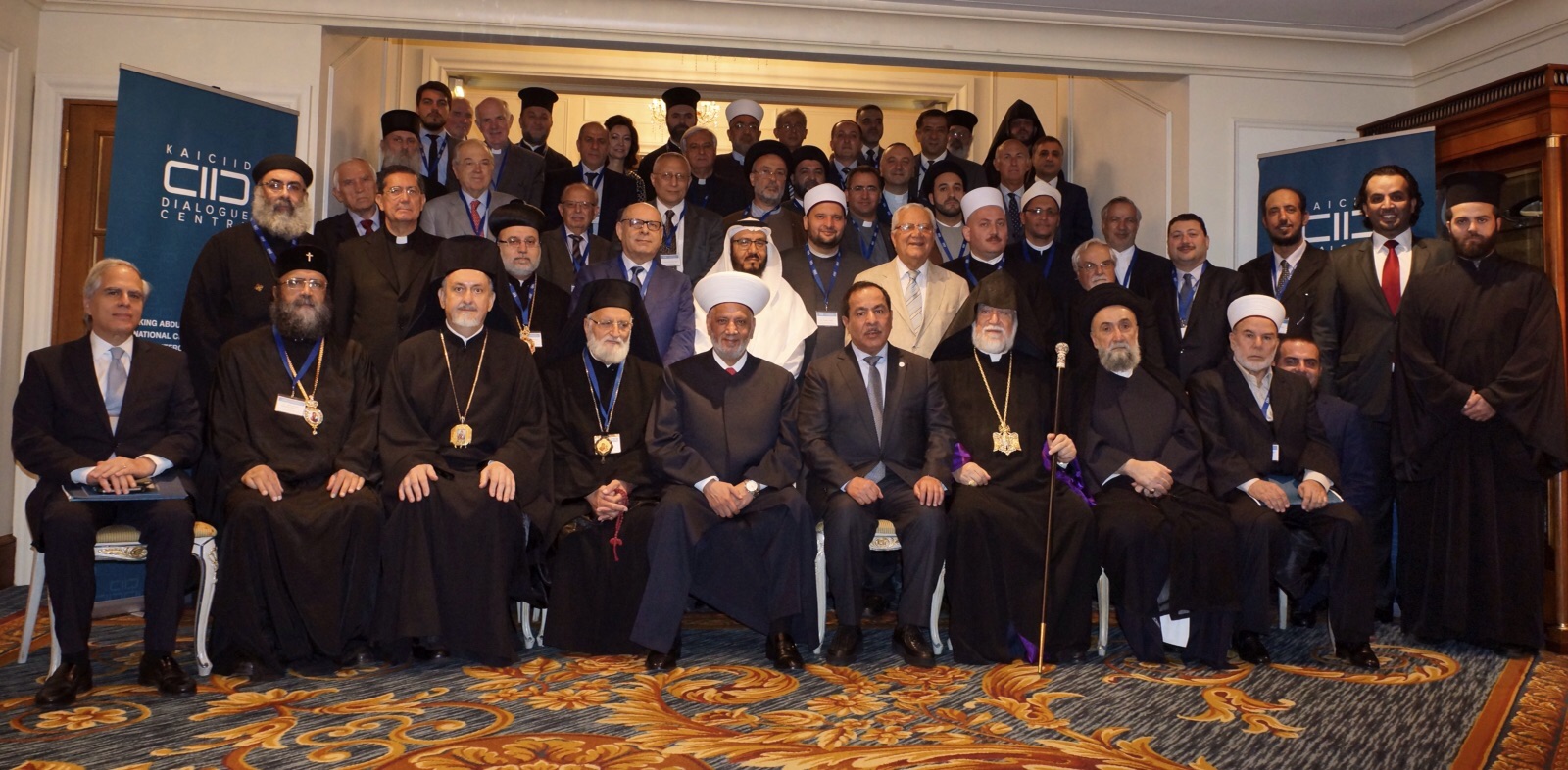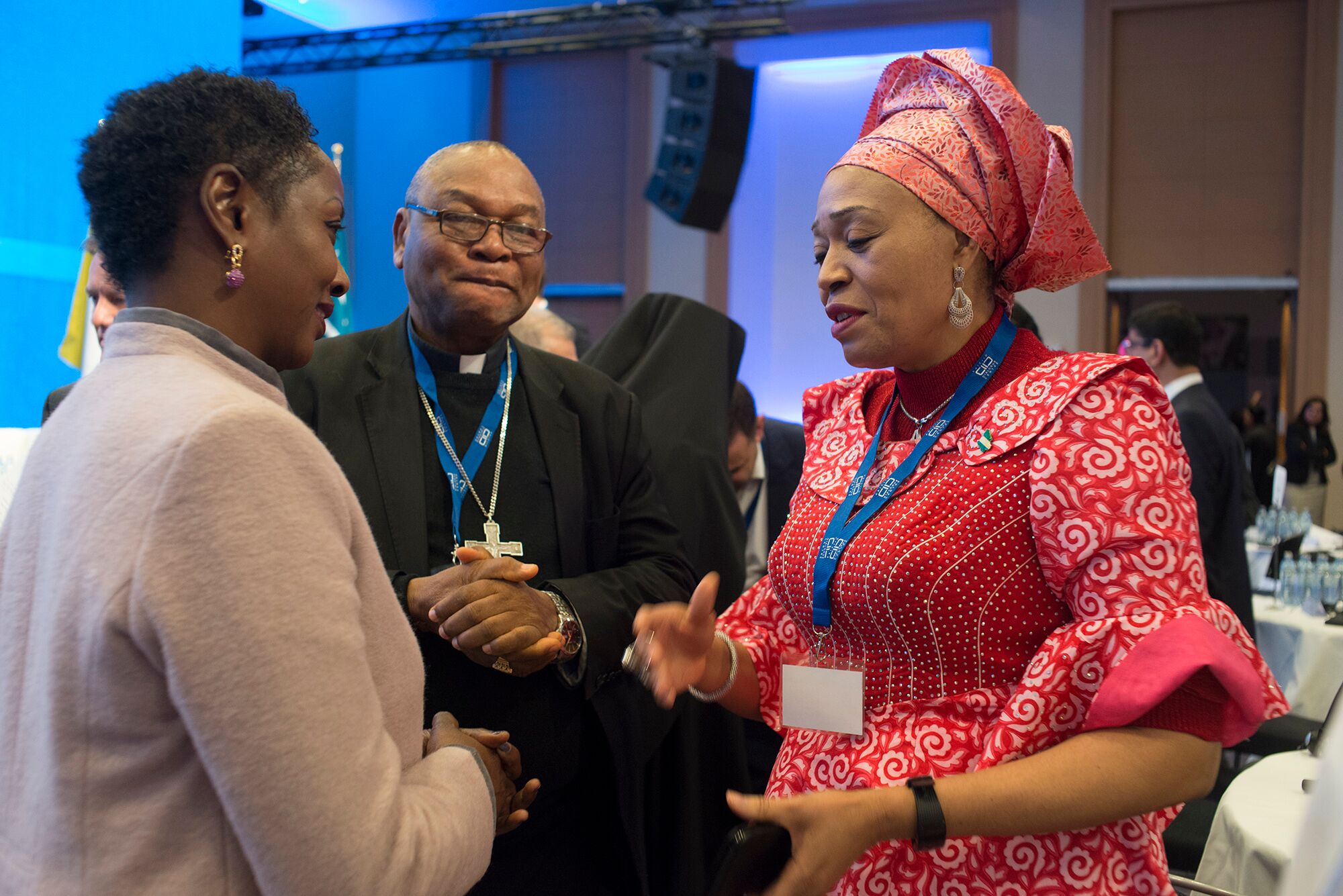The Athens Declaration

Athens Declaration
United Against Violence in the Name of Religion:
Supporting the Citizenship Rights of Christians, Muslims, and
Other Religious and Ethnic Groups in the Middle East
September 3, 2015
We Christian and Muslim religious leaders have unanimously committed ourselves to encourage all initiatives and actions aimed at supporting citizenship rights of all people, Christians, Muslims and other religious and ethnic groups, in the Middle East.
The expanding conflict in the Middle East threatens religious and cultural diversity in this region. It also undermines peaceful coexistence among citizens of the region, including Christians, Muslims, and other religious and ethnic groups. Hundreds of thousands of Christians, Muslims and other religious and ethnic groups are subjected to brutal violence and horrific torment. They are forced to flee their homes. Christians, Muslims, and other religious and ethnic groups are abused and killed by violent extremists. These violent extremists’ heinous acts stem from ideas that are totally incompatible with our shared cultures and history, and contradict authentic religious teachings.
These ideas harm the image of our religions. These crimes destroy fellowship between the followers of diverse religions, and among followers of the same faith. Our religions call for peace and coexistence. These are core values of our religions.
Speaking with one voice as Christian and Muslim religious authorities, we declare that the Christian and other religious and ethnic communities constitute an integral and inseparable part of the Middle East’s religious and cultural diversity, are rooted in its history, and contribute to the to the formation of our shared Middle Eastern identity.
We denounce in the strongest terms the persecution of the Christian, other religious and ethnic communities in the Middle East. We condemn those who manipulate religion to justify violence against people of other faiths and desecrate sacred sites and symbols.
On behalf of our religious communities, we express our unshaken solidarity with Christian and other religious and ethnic communities. We pledge to work together to actively build peace with justice, and to do everything in our power to create the kind of conditions in which the Christian and other religious and ethnic communities can live in freedom and dignity in the Middle East as full citizens.
We religious leaders jointly appeal to policymakers in the region to preserve diversity within their societies.
We religious leaders jointly appeal to policy makers and media not to associate any terrorist act committed in the name of religion with any religion, and to host credible voices to speak in the name of religion.
We also recognize and appreciate the voices raised in unison and joint initiatives launched in the region to support and strengthen the social fabric based on the principles of common citizenship.
At the local level, we religious leaders support early efforts to stem attempts to segregate religious communities and foster conflict, as well as to facilitate joint local development projects to help different communities meet, cooperate and build trust.
We call upon religious and political leaders, as well as civil society to take a strong stand against growing violent extremism and terrorism which threaten centuries of peaceful coexistence in the Middle East.
We call for the release of all hostages, abducted civilians and religious leaders, and the safe return of internally displaced persons and refugees to their homes and properties.
We commend the initiative of the Ecumenical Patriarchate, and in particular His All Holiness Ecumenical Patriarch Bartholomew, in convening this meeting in the context of “Dialogue between Christians and Muslims”, as we support the continuing implementation of KAICIID’s initiative, “United against Violence in the Name of Religion”.
Back
